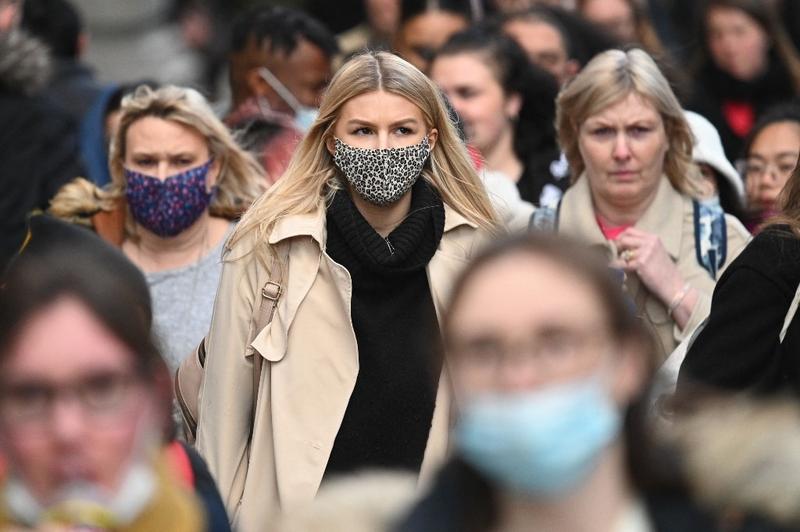 Shoppers, some wearing face-masks, walk along Oxford Street in central London on Dec 4, 2021, as compulsory mask wearing in shops has been reintroduced in England as fears rise over the Omicron variant of COVID-19.
(DANIEL LEAL / AFP)
Shoppers, some wearing face-masks, walk along Oxford Street in central London on Dec 4, 2021, as compulsory mask wearing in shops has been reintroduced in England as fears rise over the Omicron variant of COVID-19.
(DANIEL LEAL / AFP)
GENEVA - The Omicron coronavirus variant, reported in more than 60 countries, poses a "very high" global risk, with some evidence that it evades vaccine protection but clinical data on its severity is limited, the World Health Organization says.
Considerable uncertainties surround Omicron, first detected last month in southern Africa, whose mutations may lead to higher transmissibility and more cases of COVID-19 disease, the WHO said in a technical brief issued on Sunday.
Considerable uncertainties surround Omicron, first detected last month in southern Africa, whose mutations may lead to higher transmissibility and more cases of COVID-19 disease, the World Health Organization said
"The overall risk related to the new variant of concern Omicron remains very high for a number of reasons," it said, reiterating its first assessment of Nov 29.
At least one patient has died in the United Kingdom after contracting the Omicron variant, British Prime Minister Boris Johnson said on Monday.
The WHO said there were early signs that vaccinated and previously infected people would not build enough antibodies to ward off an infection from Omicron, resulting in high transmission rates and "severe consequences".
ALSO READ: Act now to curb Omicron's spread, WHO's Tedros tells world
It is unclear whether Omicron is inherently more contagious than the globally dominant Delta variant, the WHO said.
Corroborating the WHO's assessment, University of Oxford researchers published a lab analysis on Monday that registered a substantial fall in neutralizing antibodies against Omicron in people who had had two doses of COVID-19 vaccine.
The Oxford researchers said there was no evidence yet Omicron caused more severe disease.
Their findings were broadly in line with another lab analysis last week on the blood of twice-vaccinated individuals conducted by researchers at the Medical University of Innsbruck, Austria.
The analysis also registered a significant drop in antibodies reacting to Omicron, with many blood samples showing no response at all.
ALSO READ: Omicron threat may be countered with extra dose of vaccine
Both the Innsbruck and the Oxford teams said they would widen their research to those who had three vaccine shots.
Pfizer and BioNTech said last week that two shots of their vaccine may still protect against severe disease, because its mutations were unlikely to evade the T-cells' response.
They also said a third booster shot restored a level of antibody protection against Omicron.
The WHO cited preliminary evidence that the number of people getting reinfected with the virus has increased in South Africa.
While early findings suggest that Omicron may be less severe than the Delta variant, more data is needed to determine whether Omicron is inherently less dangerous, it said.
READ MORE: World scrambles to contain Omicron
"Even if the severity is potentially lower than for the Delta variant, it is expected that hospitalizations will increase as a result of increasing transmission. More hospitalizations can put a burden on health systems and lead to more deaths," it said.
Further information was expected in coming weeks, it added, noting the time lag between infections and outcomes.


